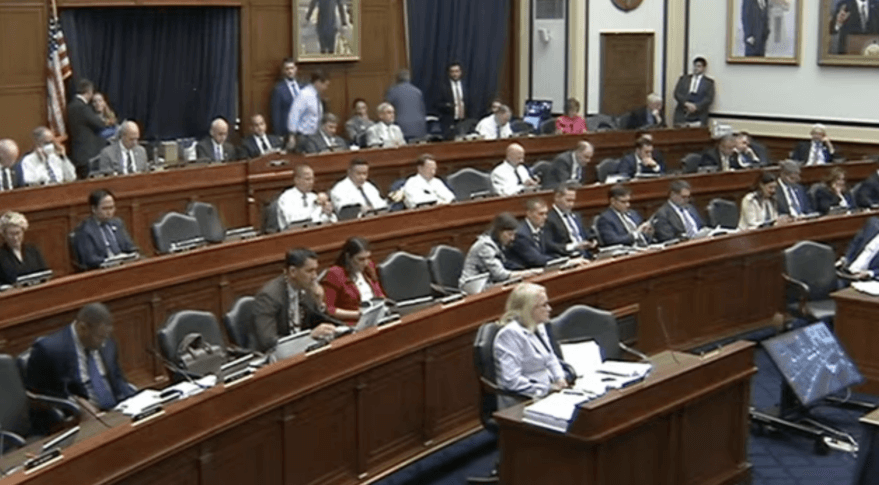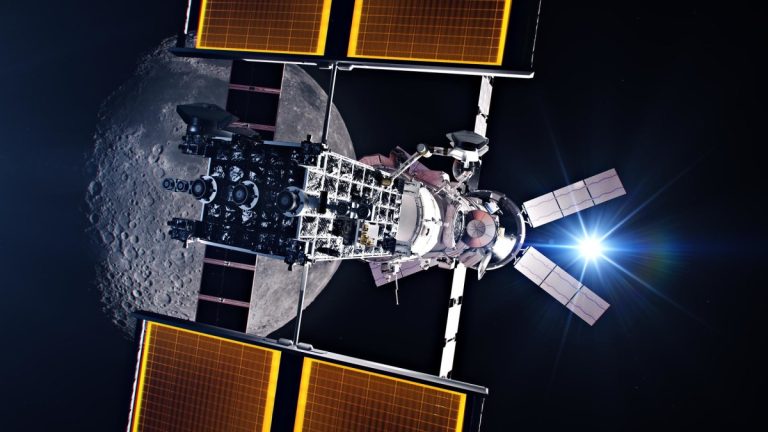
House Armed Services Committee advances 2023 NDAA, increases DoD spending by $37 billion (Image Credit: Space News)

WASHINGTON — The House Armed Services Committee early Thursday approved its version of the National Defense Authorization Act (NDAA) for Fiscal Year 2023 by a vote of 57-1 after an all-night markup session.
Hundreds of amendments were negotiated during the 17-hour markup session. The annual defense policy bill now heads to the House floor.
The committee approved an amendment by Rep. Jared Golden (D-Maine) to increase the defense budget by $37 billion, a proposal opposed by HASC Chairman Rep. Adam Smith (D-Wash.). Smith had recommended $772.5 billion for DoD. But Golden’s amendment passed the HASC by a vote of 42 to 17.
The funding increase approved by HASC is less than the $45 billion proposed by the Senate Armed Services Committee. The bills will be reconciled in a conference committee later this year.
Amendment increases launch funding
The HASC passed an amendment offered by Rep. Steven Horsford (D-Nev.) to authorize $100 million for tactically responsive space, a program that funds small-satellite launch experiments and demonstrations. That is $25 million more than the $75 million Smith had recommended.
Another Horsford amendment adopted by the HASC requires the U.S. Space Force and Space Command to develop a “responsive space strategy, principles and a model architecture to be implemented across the United States Space Command.”
The bill would require DoD to “establish a program to demonstrate responsive space capabilities through operational exercises, wargames, and table-top exercises,” Horsford’s amendment said. It also calls for the U.S. to work with allies on joint space missions that demonstrate “rapid launch, reconstitution and satellite augmentation from locations in the Indo-Pacific, European, and other theaters of operations.”
Commercial space technologies
The HASC approved an amendment from Rep. Salud Carbajal (D-Calif.) that calls on the Space Force to “rapidly integrate new capabilities related to space situational and domain awareness, satellite imagery, satellite communications, and others.”
The committee mandates a report on “how the Space Force plans to communicate current and emerging needs across all mission areas to commercial space service providers and how commercial services can contribute to fulfilling space domain awareness requirements.”
Satellite communications
Also approved was an amendment offered by Rep. Robert Wittman (R-Va.) directing a report on how DoD plans to integrate commercial satellite communications into its larger satcom enterprise.
“The committee remains aware of the encouraging opportunities presented by integrated commercial and military satellite communications architectures for delivering robust, flexible, and manageable enterprise solutions for the Department of Defense,” said the bill.
It added that DoD “must continue to focus on the efficient acquisition of commercial satellite communications by applying sustainable and efficient practices for contracting with commercial providers and making appropriate and timely adjustments to react to new demand signals from the military departments.”
The committee wants a report detailing “how contracting with commercial providers for satellite communication capabilities will adjust to future demand signals” and a description of how contracts with commercial providers for satellite communication capabilities are designed to accommodate unforeseen demand increases.
Commercial services for debris cleanup
The HASC adopted an amendment from Rep. Doug Lamborn (R-Colo.) directing DoD to submit a plan on how it will use commercially available technologies for on-orbit services and debris removal.
The amendment mentions the Space Force’s recently launched Orbital Prime program to use commercial technologies for on-orbit demonstrations. But the committee is concerned that DoD plans “do not appropriately incorporate recent advancements in commercial on-orbit servicing technology offerings to extend operational spacecraft mission lifetimes or enable timely post-mission disposal,” the amendment said.
The bill requests a report detailing “plans to prioritize the servicing of existing in-orbit spacecraft to extend life, alleviate debris, add resiliency and capability with commercially available services, wherever possible.”








